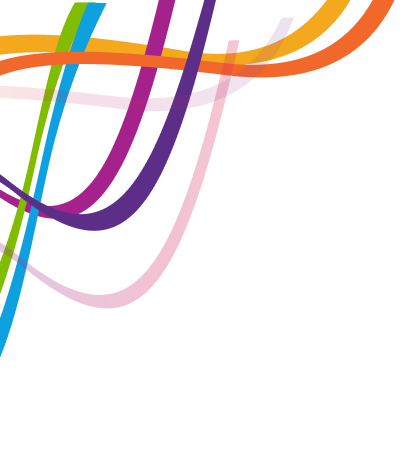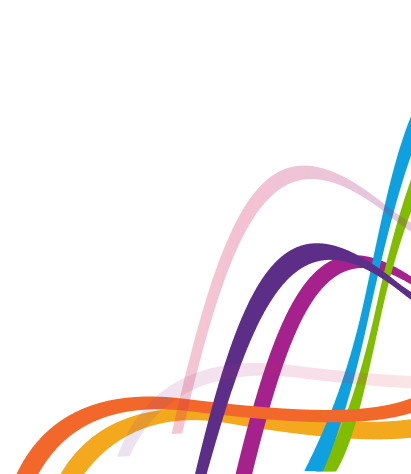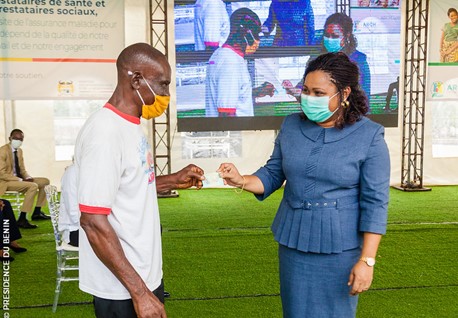
- Report -

Ukraine
Making every school a health-promoting school: global standards and indicators
author




- Improved access to quality essential health services irrespective of gender, age or disability status
- Countries enabled to provide high-quality, people-centred health services, based on primary health care strategies and comprehensive essential service packages
- Reduced number of people suffering financial hardship
Towards universal health coverage (UHC): Government of Benin expanding health coverage to the extreme poor
Before the establishment of the ‘assurance pour le renforcement du capital humain’ (ARCH - Insurance for Strengthening Human Capital) in 2019, the national health insurance scheme in Benin was characterized by a user fees policy which had adverse effects on the demand for health services. This led to the poorest being unable to access and/or pay for health services when they needed them most. To combat this, the ARCH programme was set up with the ultimate goal of stimulating socio-economic growth. The programme entails a package of four integrated services including training, credit, and retirement insurance, along with health insurance which forms the main part of the programme. WHO Benin supported the national authorities to design a more holistic approach for social insurance by assessing the one-year pilot phase of the health insurance component and formulating recommendations for the scale up phase. As of December 2022, a total of 867 944 individuals from the poorest strata have been identified and enrolled into ARCH and now benefit from free treatment in public health facilities in Benin. The state subsidizes up to 100% of the contributions for this population.
Key WHO Contributions
Supported the government of Benin to assess the pilot phase of the ARCH programme Health Insurance component to identify gaps and recommend corrective actions with the support of the “Institut Regional de Santé Publique - Comlan Alfred Quenum (IRSP-CAQ), collaborating centre in training on health emergency management
Provided guidance on implementing the recommendations from assessment report on strengtening the health insurance component of the ARCH programme.
How did Benin, with the support of the WHO Secretariate, achieve this?
Health insurance is a mechanism by which individuals can access a range of quality health services without incurring serious financial hardship. This is a critical element for Universal Health Coverage (UHC). Every country has a different path towards UHC and each needs to consider which health services to cover based on the needs of the populations along with the available resources. However, the importance of access to health services as a basic human right is universal.
In Benin, prior to development of the ARCH, the health financing system was severely fragmented and not yielding the expected outcomes. Contributary schemes for salaried formal sector coexisted with voluntary community-based health insurance, with such practices shown to be non-synergistic. Before 2016, only 8.4% of the population was covered by health insurance, mainly for civil servants and other salaried staff, but was shown to be inefficiently managed by the state with often exorbitant transaction costs [1]. There were no compulsory practices for the private sector and no large scale operational social protection mechanisms in place for the informal sector. Although the informal sector contributes about 68% towards gross domestic product, it is characterised by the lowest socio-economic strata who have difficulty accessing basic social services [2].
In 2020, WHO Benin country office and the Regional Office for Africa, supported the national authorities by conducting a review of the pilot phase of the health insurance component of ARCH programme. This was done by screening key UHC aspirations and targets in collaboration with the Regional Public Health Institute (Institut Regional de Santé Publique - Comlan Alfred Quenum -IRS CAQ). This assessment pointed out key challenges and formulated recommendations as prerequisites to effectively scale up the health insurance component including (i) the importance of extending the access to health insurance benefit to the most vulnerable groups such as the extremely poor and reducing the out-of-pocket costs as a significant barrier for care seeking by the poor, (ii) the necessity of expanding fields of service to be included in the healthcare basket, (iii) the need to put in place timely and responsive reimbursement mechanisms for health facilities as well as (iv) improving communication on the health assurance component at the community and grassroots levels.

Dr Veronique TOGNIFODE, the Ministry of Social Affairs and Microfinance handing a health insurance card to a newly enrolled beneficiary of the ARCH’s Health Insurance component during the launching ceremony of the extension of the program on January 2021.
Photo credit: Presidence du Benin.
With the support of other technical and financial partners, the scale-up phase of the ARCH’s health insurance component was expanded to the most vulnerable groups, following the assessment recommendations. Early successes of this scale-up phase include extension from three health zones in seven municipalities to all the 34 health zones across the 77 municipalities of the country to achieve greater financial protection against the impoverishing cost of illness and reduction in social exclusion from organized health financing instruments. As of December 2022, a total of 867 944 extreme poor have been identified over a target of 1 000 000 (which represents 86,79%) and enrolled in the health insurance system and given a health insurance card. They are now able receive free treatment in public health facilities in Benin. The state subsidizes up to 100% of the contribution for them.
“I was involved in a serious car accident with multiple fractures and my family could not afford emergency care. But thanks to the health insurance card, I was able to be taken care of immediately and free of charge. During the days following my treatment, I had to undergo surgery due to complications. Both the surgery and the prescribed medication were free”
Ms. Laurence KPAKPO, 20 years old beneficiary.
Thanks to the leadership of the government through the Ministry of Social Affairs and Microfinance and the ongoing reforms of the health sector through the Government Action Programme 2021-2026, the national laws governing social and health protection were amended (amending law N°2022-07 of October 04, 2022 amending N° 2020-037 of February 03, 2021) to now include compulsory subscription onto insurance mechanisms for all workers in the formal and informal and public and private sectors as of 1st January 2023. This was made possible due to the findings of the assessment of the pilot phase of the ARCH programme. In addition, the institutional arrangement of the National Agency for Social Protection « Agence Nationale de la Protection Sociale » (ANPS) created in 2019 was revised to lead the practical implementation and governance of the ARCH programme.
The basic healthcare basket has been extended based on WHO guidance to 22 medical conditions including diarrheal diseases, intestinal parasitosis, malaria, dermatological treatments, respiratory infections and other infections for children under five, birth control, visceral surgery, surgical emergencies and trauma. These represent 75% of the most common health problems of the Beninese population.
“Regarding this basket there are 3 levels. The basic healthcare basket is about primary health care and has been accessible to the identified extreme poor from the pilot phase to the extension phase.”
Dr Atade NAWANA, Coordinator of the Health Zone Abomey-Calavi / Sô-Ava
As next steps, the government is planning to extend coverage of the health insurance system to informal sector populations including farmers, merchants, carriers, craftsmen and artists in order to move towards the generalisation of health insurance to all. They will request WHO to support the identification of these populations for their enrolment.
References
- INSTaD, 2016
- Holistic Social Protection Policy in Benin, March 2013, UNICEF.
- Improved access to quality essential health services irrespective of gender, age or disability status
- Countries enabled to provide high-quality, people-centred health services, based on primary health care strategies and comprehensive essential service packages
